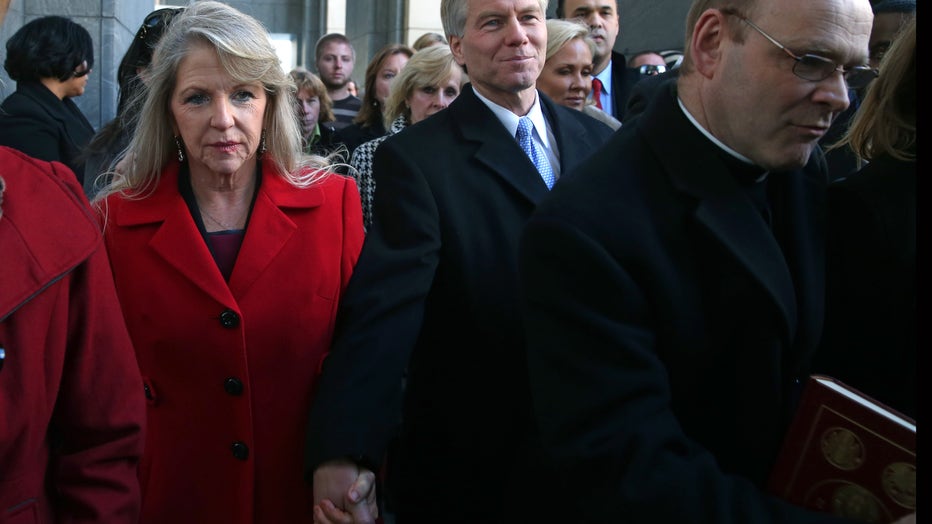Former Virginia governor found guilty in influence-peddling case

Former Virginia Gov. Bob McDonnell and his wife, Maureen leave the US District Court for the Eastern District of Virginia, on January 24, 2014 in Richmond, Virginia. Photo by Mark Wilson/Getty Images
(CNN) -- A jury on Thursday convicted former Virginia Gov. Bob McDonnell and his wife on charges related to influence peddling, concluding a sometimes dramatic trial and derailing the political ambitions of the one-time rising star in the Republican Party.
After more than a month of sometimes soul-baring testimony, the jury issued guilty verdicts on 11 counts against McDonnell, while clearing him on two others. His wife, Maureen, was convicted on nine while cleared on four.
The former first couple openly sobbed in the Richmond, Virginia, courtroom as the guilty verdicts came in.
Jury deliberations began Tuesday in the case that had all the elements of a soap opera: a broken marriage, alleged influence peddling and courtroom drama.
McDonnell and his wife arrived and left the courthouse separately throughout the trial in a display at the heart of their defense.
The pair pleaded not guilty to 14 counts of fraud, making false statements, and obstruction. They were indicted in January after McDonnell left office following the lone term allowed under Virginia law.
Prosecutors alleged the McDonnells accepted gifts with a combined value of at least $140,000 from Jonnie Williams, a nutritional supplement executive, in exchange for promoting his company using the power and the trappings of the governor's office.
The gifts included designer clothes, a Rolex watch, golf clubs, iPhones and a painting, according to the indictment and evidence presented at the trial.
Their defense? The 38-year marriage was so broken that the McDonnells barely spoke to each other, let alone conspired to peddle influence in the way alleged by the government.
McDonnell said he didn't commit any crime, though he acknowledged questionable judgment in accepting what he called the "personal generosity and friendship" of Williams.
Defense lawyers argued that Maureen McDonnell, seeking emotional attachment because of her loveless marriage, developed what they described as a kind of schoolgirl crush on Williams and relished the attention and gifts from him.
The question was whether she or her husband reciprocated by promoting Williams' business in government circles.
Witnesses included some of the family's five grown children, former staff members of the governor and others close to the state's first family.
The McDonnells tried to get their cases separated, but lost that bid.
CNN's Ashley Killough and paul Courson contributed to this report.

